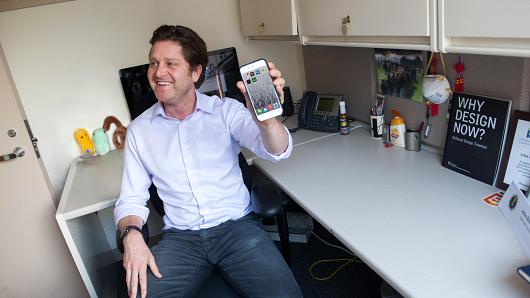

When Harvard Medical School professor John Brownstein had an idea for how Uber could provide a health service back in 2015, he shot off a few cold messages on LinkedIn. Brownstein didn’t get a response from any of the Uber executives he contacted, so he tried a different tactic.
After his next ride, he wrote a response to a support ticket: “The ride was fine, but you guys should really consider health care as your next application.”
That did the trick. Brownstein was invited into Uber’s offices to share his idea. It seemed like a no-brainer as an opportunity for Uber to do good and explore a new revenue opportunity. He proposed putting nurses in cars to deliver potentially life-saving vaccines to offices and homes across the country.
That idea later became UberHEALTH.
Over the years, Brownstein, who is also a computational epidemiologist at Boston Children’s Hospital, has quietly become a go-to for tech executives as they plot their initial steps into the health sector.
“I work with tech companies because I think a lot about how we can use these data-sets to understand population health,” he said in a recent interview with CNBC.
Brownstein is fascinated by how the growing volume of digital data aggregated by tech companies can be meaningful. He studies how things like Google searches, data from wearable trackers, or social media posts can provide insight on predicting disease and improving health outcomes.
He was among the first to develop an Apple CareKit application to make it easier to collect medical data for parents of children with special needs. He was also a pioneer in leveraging Twitter’s health-related conversations to study public health issues like chronic disease and gun violence. He worked with a small group of researchers to find out whether Yelp reviews could be an indicator of food poisoning outbreaks.
These days, he’s intrigued by the health potential of Amazon’s Alexa application. He’s one of the judges for a Merck-sponsored competition to build diabetes-management apps for the voice application. And his team at Boston Children’s Hospital developed its own app called KidsMD to provide simple health advice to parents.
Some efforts were too early
Not every idea has turned into a big success. For instance, he worked closely with Google on its ill-fated flu trends project, which was shut down three years ago because the data collected wasn’t accurate enough.
But Brownstein says that many of the first technology efforts in health care were ahead of their time. Efforts that get off the ground today might have a better shot, he said.
“There will be some successes, because the electronic medical record companies are more open than they used to be,” he said. The newly available data from medical records includes labs, allergy lists and so on.
This may be why some companies have held off on entering $3 trillion health sector. Facebook and Twitter haven’t done much, Amazon is just getting its feet wet—CNBC reported last month that the company is looking to build out a team for an online drug sales push.
But Brownstein believes that most of the big tech companies will jump on the health tech bandwagon in coming years.
“All of our online interactions tell us something important about our health,” he said.
[“Source-cnbc”]



